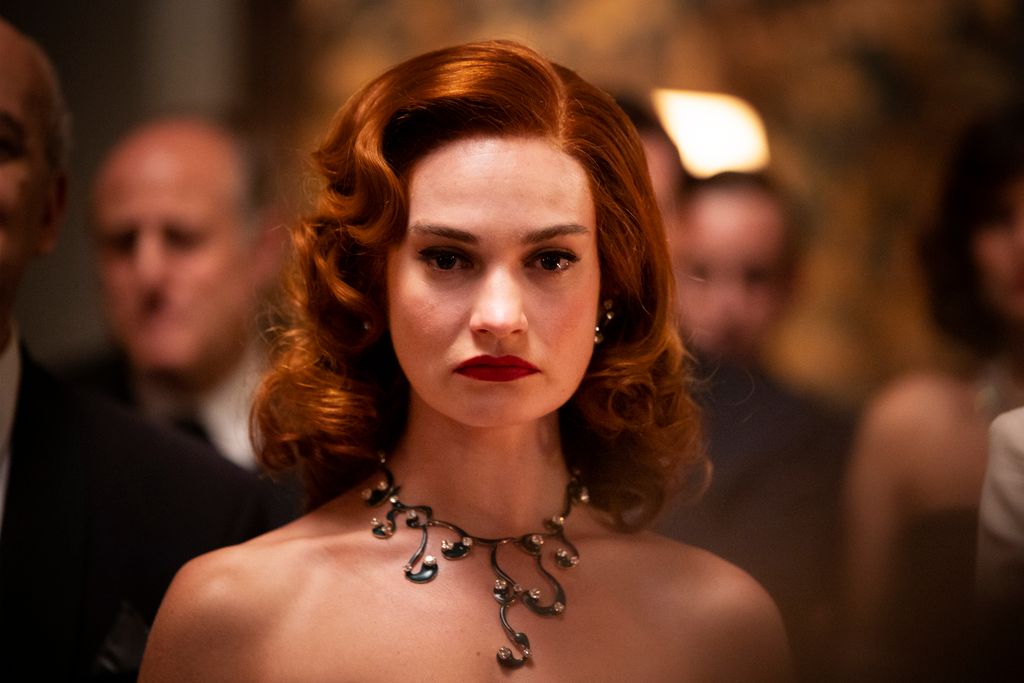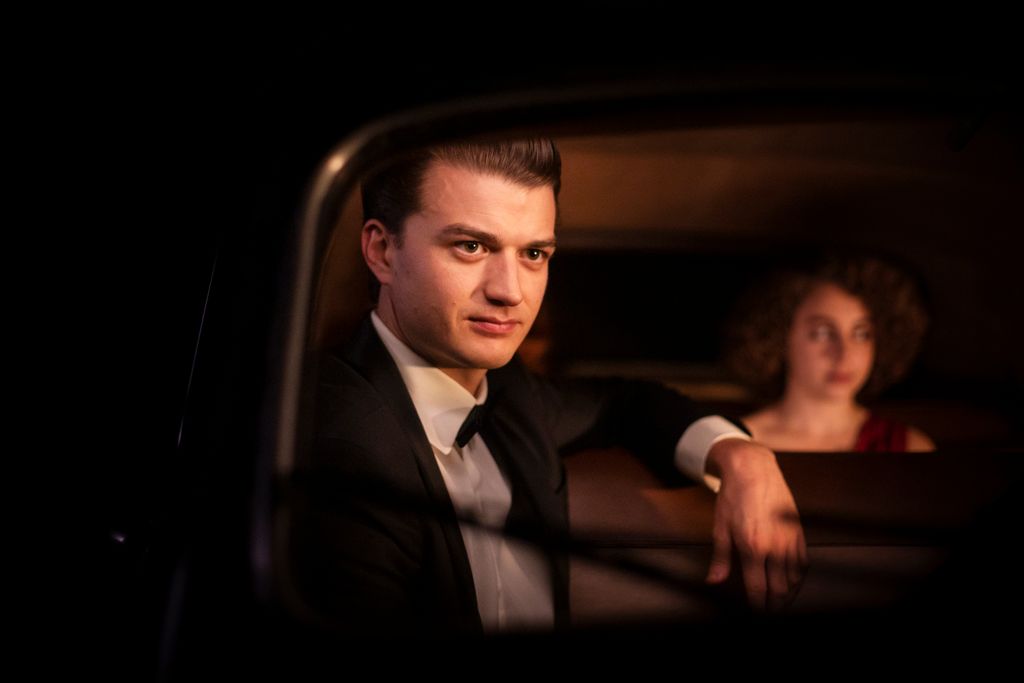Entertainment
Playwright August Wilson was ahead of his time. But would he have made it today?

Review
August Wilson: A Life
By Patti Hartigan
Simon & Schuster: 544 pages, $32.50
If you buy books linked on our site, The Times may earn a commission from Bookshop.org, whose fees support independent bookstores.
It wasn’t easy for Frederick August Kittel Jr., a high school dropout from Pittsburgh’s Hill District, to transform himself into August Wilson, the venerable playwright whose 10-play cycle examining 20th century Black life in America earned him a seat in the pantheon beside Eugene O’Neill, Arthur Miller, Tennessee Williams and Edward Albee.
No dramatist survives the journey from obscurity to fame unscathed, but Wilson’s path was especially grueling. In addition to dealing with the usual economic pain and maddening fickleness of a system that enjoys bestowing favor only to take it away, he had to contend with the legacy of white supremacy, as deeply entrenched in the liberal bastion of the American theater as anywhere else in society.
Patti Hartigan’s “August Wilson: A Life,” an invaluable and highly absorbing new biography, traces Wilson’s groundbreaking trajectory from his penurious beginnings to his death at age 60 in 2005, which made the front pages of newspapers around the nation. Through high-profile revivals and star-studded screen adaptations, Wilson’s work lives on powerfully and prolifically. Hartigan’s book reminds us what it took for the man to become a monument.
Raised by his mother, Daisy Wilson, he had only the most precarious relationship with Frederick August Kittel, the white Bohemian-born immigrant baker who was said to be his (and a few of his siblings’) biological father. Kittel, who was married, was an erratic and destabilizing presence in the household.
Wilson couldn’t understand how a man who neglected his children could be their real father. The scars of this wound established an early paradigm of Black maternal love and reckless white patriarchal cruelty that was serially reinforced as Wilson made his way in the world.
His reluctance to talk about his biracial background only seemed to provoke further questions. In a 1988 interview with Bill Moyers, Wilson was asked about his practice of writing almost exclusively about Black characters. Was he not denying part of his own heritage?
Accustomed to answering what would never be asked of a white author, Wilson patiently explained, “The cultural environment of my life, the forces that have shaped me, the nurturing, the learning, have all been Black ideas about the world.”
Skepticism about his identity wasn’t strictly a white phenomenon. Wilson was especially stung when Henry Louis Gates Jr. challenged his authenticity in the 1997 New Yorker article “The Chitlin Circuit.” “He neither looks nor sounds typically Black — had he the desire he could easily pass — and that makes him Black first and foremost by self-identification,” Gates wrote.
A central irony of Wilson’s life is that, despite the communal source of his artistry, he was fated to be an outsider. Misunderstood and racially tormented in Catholic school, he found refuge in inwardness.
Sister Mary Christopher recognized his writing ability and encouraged him to read his stories to the class. But not all his teachers had such a favorable view. The nuns would tell his mother, “He’s either going straight to the top or straight to the bottom. There is no middle ground for him.”
His formal education ended at Gladstone High School after a teacher accused him of plagiarizing a paper on Napoleon Bonaparte that he assiduously researched and wrote himself. Undeterred, he continued his studies at the Carnegie Library, where he read his way through the stacks. “I dropped out of school, but I did not drop out of life,” Wilson said of that turning point.
This resilience would carry him through decades of struggle. Wilson found his vocation as a street poet with a group of neighborhood bards known as the Centre Avenue Poets. But his voice as a writer took time to discover. He began composing verse in a flowery style, heavily influenced by Dylan Thomas and John Berryman. Amid the revolutionary currents of the 1960s, the young Wilson dressed like a literary gentleman from the 1940s.
The blues alchemized him. Listening to Bessie Smith was a sort of baptism: He submerged himself in what he called the “wellspring” of his art. “The universe stuttered and everything fell to a new place,” he recalled.
An equally powerful transfiguration occurred through his encounter with the work of the Black American artist Romare Bearden. “What I saw was Black life presented on its own terms, on a grand and epic scale, with all its richness and fullness, in a language that was vibrant and which, made attendant to everyday life, ennobled it, affirmed its value, exalted its presence.” These words, which appear in Wilson’s introduction to Myron Schwartzman’s 1990 biography of Bearden, serve as an eloquent summation of his own art.
The shift in Wilson’s poetry was dramatic — and led naturally to drama. “He started thinking, hard, about the banter he heard in Pat’s Place [a pool hall in the Hill District] and at the jitney station, about men sitting around signifying and telling lies,” Hartigan writes. Wilson recognized what was holding him back as a writer: “I didn’t value and respect the speech pattern … I was always trying to mold it into some European sensibility of what the language should be.”
The road to becoming a playwright would have several false starts, including the musical “Black Bart and the Sacred Hills,” an epic disaster that might have derailed a lesser talent. He was a father in his mid-30s, living with his second wife in Minneapolis after filing for bankruptcy, when the future finally beckoned.
After several rejected applications, Wilson was invited to join the Eugene O’Neill Theater Center’s National Playwrights Conference in 1982 to work on what would eventually flower into his breakthrough play, “Ma Rainey’s Black Bottom.” Lloyd Richards, the artistic director of the conference who directed the original Broadway production of “A Raisin in the Sun,” would guide Wilson’s playwriting evolution.

Patti Hartigan’s new biography of August Wilson is highly informative and fluid for an unauthorized work.
(Marisa Ih)
Hartigan’s biography is at its best in chronicling the artistic process that reshaped not only Wilson as a dramatist but also the producing structures of the American theater. As artistic director of the Yale Repertory Theatre and dean of the Yale School of Drama, Richards made available to Wilson a safe place to incubate and launch his works.
No sooner was Wilson admitted into the big leagues than the creative floodgates opened. In rapid succession he followed “Ma Rainey” with “Fences,” “Joe Turner’s Come and Gone” and “The Piano Lesson.” This period — one of the most breathtakingly fecund in the history of the American theater — was assisted by regional theater tours that gave him time to hone his plays before they hit Broadway.
Wilson’s artistic story, throbbing with the ancestral memory Wilson felt in his blood, is profoundly inspiring in Hartigan’s magnificent rendering. This unauthorized biography, forced to paraphrase many of Wilson’s letters, early plays and poetry, may not offer the kind of detailed critical readings found in other monumental biographies — James Knowlson on Samuel Beckett, Michael Meyer on Henrik Ibsen, Michael Holroyd on George Bernard Shaw. But the work is blessedly free of the endless plot summaries that weigh down Hermione Lee’s biography of Tom Stoppard.
A former theater critic for the Boston Globe, Hartigan brings a sharp critical perspective to bear that keeps “August Wilson: A Life” from crossing over into hagiography. She loves her subject but remains clear-eyed about Wilson’s limitations, including the stereotypical leanings of his female characters and the muddled quality of some of his later plays. She identifies “Joe Turner’s Come and Gone” as the masterpiece of the cycle, recognizes “Fences,” “The Piano Lesson” and “Gem of the Ocean” as modern classics and responds to the irresistible vitality of speech rhythms in “Jitney” and “Two Trains Running.” All of this strikes me as unimpeachable.
There are other versions of Wilson’s life to be told — versions that give a more intimate look at his psychological complexity, versions that reckon more deeply with the roots of his Black imagination, versions of a more scholarly order — but Hartigan arrives at a satisfying balance.
It’s particularly moving to read this book in the wake of national reckoning that followed the murder of George Floyd. Wilson took enormous flak for calling out the systemic racism of the American theater. Robert Brustein even suggested Wilson was guilty of a “failure of gratitude” toward the system that had anointed him.
Straddling zeitgeists, Wilson was at once ahead of his time and the beneficiary of a particular moment in the history of American drama that may sadly be no more. As regional theaters across the country struggle to remain open in the face of dwindling audiences and rising costs, is the path of a 21st century August Wilson still possible?

Movie Reviews
Movie Review: New 'Superman' From Director James Gunn | Seven Days

So, yes, the discourse is out of control. It started when Superman writer-director James Gunn suggested to interviewers that the beloved DC Comics hero was an “immigrant.” (Superman is, after all, a refugee from another planet.) The right-wing media sphere riposted by deriding Gunn’s reboot as “woke.” The White House posted a doctored version of the movie poster with the president’s face on the Man of Steel. People spread an unfounded rumor that Gunn was suing over the appropriation. Superman made a lot of money over the weekend, which didn’t silence the naysayers.
It would be absurd to decry the “politicization” of Superman — fiction and politics have always been overlapping spheres. But does the hero’s second full cinematic reboot have a reason to exist beyond offering the latest excuse for online hullabaloo?
The deal
Forget about origin stories. Everybody already knows how Superman reached Earth and was raised by kindhearted Ma and Pa Kent (Neva Howell and Pruitt Taylor Vince). This tale opens in medias res, with young Superman (David Corenswet) already well known in Metropolis, masquerading as Daily Planet reporter Clark Kent and dating fellow newshound Lois Lane (Rachel Brosnahan). Superman isn’t the only “metahuman” in this world, but he is the strongest, and he’s made powerful enemies by foiling the invasion plans of a dictator. (There’s no single glaring analogue to real-world events here, which hasn’t stopped the speculation.)
While the State Department frets over Superman’s unilateral foreign interventions, billionaire Lex Luthor (a wonderfully smug Nicholas Hoult) takes matters into his own hands. Eager to protect his economic interests, he crafts new metahumans to attack Superman.
But Lex’s real coup is a PR smear. Having infiltrated Superman’s Fortress of Solitude, he reconstructs the fragmentary message that Superman’s alien parents (Bradley Cooper and Angela Sarafyan) sent with him to Earth. Turns out the Kryptonians intended Kal-El to rule humanity and not just be our protector, as he’s always assumed. Once the news leaks, the world decides Superman is a wannabe tyrant with a “secret harem.”
It’s a shock to a gee-whiz guy who has only ever wanted to help people. When Lex kidnaps the Superdog, Krypto, Superman gets really pissed off.
Will you like it?
Much has been made of the vibe shift from Zack Snyder’s “gritty,” tormented 2013 version of the Man of Steel to this one. Without a doubt, Gunn’s Superman returns to the sunnier, cornier tone of the 1978 Richard Donner film. Corenswet’s Superman is almost comically good — he rescues kids, dogs, even unwary squirrels — and he isn’t afraid to be uncool. When Lois accuses him of being naïve, he suggests that trust and kindness to others are “the real punk rock.”
It’s the mission statement of an uncynical hero who has been very knowingly designed for an ultra-cynical era. Superman is often a silly movie, much like Gunn’s Guardians of the Galaxy films, yet there’s nothing pandering or sanitized about it.
Indeed, it has one telling resemblance to Man of Steel: Both take place in a 24-7 news culture where everyone is expecting Superman to make a fascist heel turn. The 21st century doesn’t know how to comprehend someone so strong and so decent, but that’s just who this guy is.
The movie manages to make goodness interesting, in large part because its star radiates old-fashioned charisma. Corenswet deploys a slightly dorky charm to play the character as confident without being arrogant, just like original Superman Christopher Reeve. Brosnahan matches him with a tight-wound nerviness reminiscent of Margot Kidder. This Lois already knows Clark’s secret identity, so we get to watch them work out the growing pains of their relationship without secrets. In one deftly written scene, she challenges both his geopolitical savvy and his journalistic ethics — Superman has a questionable habit of interviewing himself.
Somehow this adult romance coexists just fine with the kid-friendly shenanigans of Krypto (who is not a very good boy). Most of the long roster of wacky supporting characters make strong impressions, from a lady-killer Jimmy Olsen (Skyler Gisondo) to a fatuous Green Lantern (Nathan Fillion) to Mr. Terrific (Edi Gathegi), who’s so fearsomely competent that he regards everyone else with a touch of serene disdain. It’s easier to forgive the dullness of the requisite city-wrecking CGI battles with such amusing company.
If you want a more “realistic” Superman or just hate comic-book movies, this Superman isn’t for you. The primary colors, chaotic world-building and goofy, self-referential humor all work in synergy. It’s the kind of movie where the sneering villain has a lair that doubles as an escape vehicle.
But if you’re weary of comic-book movies that take themselves ultra-seriously, Gunn’s Superman delivers. Sure, maybe it’s political, if you think there’s something radical about a Superman who just wants to save people, regardless of their nationality, color or creed. Also, it’s fun.
If you like this, try…
Super (2010; AMC+, Philo, Pluto TV, Roku Channel, YouTube Primetime, rentable): Back when Gunn was a low-budget indie filmmaker, he made this comedy that deconstructs the whole superhero mythos, with Rainn Wilson as a jilted husband homicidally determined to fight evil. It’s equally disturbing and funny.
Man of Steel (2013; HBO Max, YouTube Primetime, rentable): There’s been endless debate over whether Snyder’s edgy version of Superman (Henry Cavill) is the superior one.
Superman (1978; HBO Max, YouTube Primetime, rentable): But most people seem to acknowledge the classic status of Donner’s version, which predated the comic-book conquest of cinema.
Entertainment
Ann Philbin wins the Getty Prize and steers $500,000 to NPR, KCRW and LAist

NPR is receiving a highly symbolic financial boost days before Congress is expected to vote on the fate of federal funding that supports the news and culture nonprofit.
Ann Philbin, former director and current director emeritus of the Hammer Museum at UCLA, has been named this year’s Getty Prize recipient. The honor comes with a $500,000 grant for a nonprofit of the winner’s choice, and Philbin has selected NPR and its Los Angeles member stations, KCRW and LAist.
The prize is considered the Getty’s highest honor and recognizes what the institution calls “cultural leaders whose work expands human understanding and appreciation of arts and culture.” Previous awardees include Frank Gehry, Mark Bradford, Ed Ruscha, Yo-Yo Ma and Thelma Golden.
“I wanted to shine a light on one of the most pressing issues of our day,” Philbin said in a phone interview. “And that’s freedom of speech and freedom of the press.”
Philbin said she requested that half of the Getty grant go to NPR and the other half to be split between KCRW and LAist.
“Those two radio stations for me — and I think for so many Angelenos who spend so much time in their cars — are constant companions,” Philbin said. “We listen to them all the time, and they’re precious to us. To even think about the fact that they might not exist is unbearable.”
NPR Chief Executive Katherine Maher in May filed a lawsuit against President Trump after he issued an executive order directing the Corp. for Public Broadcasting to freeze all funding to NPR and PBS. She said Philbin’s decision to split the donation between NPR and its local affiliates showed a level of understanding about the interdependency of the local and national radio platforms not often mirrored in the national conversation.
“It is an extraordinary gift at an extraordinary time with real, material impact for the stations,” Maher said.
Congress has until the end of the week to vote on a White House proposal known as the rescission bill that would claw back $9 billion in foreign aid and more than $500 million per year in federal funding already approved for the Corp. for Public Broadcasting, which funnels financial support to NPR and PBS as well as local public radio and TV stations across the country.
Trump has been adamant that his allies vote in favor of the rescission package, writing on Truth Social last week that he will withhold support and endorsements from any Republican who doesn’t vote in its favor. He called the Corp. for Public Broadcasting, NPR and PBS “a monstrosity.”
The proposed cuts to the Corporation for Public Broadcasting would total $1.1 billion over the next two years. Federal funding accounts for about 15% of PBS’ budget and 1% of NPR’s budget, according to NPR, but local stations would be the hardest hit and some may not survive, Maher said. If they vanished, she added, they would take with them the kind of hyper-local, community-based reporting that helps forge and maintain a sense of place, identity and purpose, particularly in rural communities.
“That impact is something that is hard to conceptualize, even when you are a member of Congress who represents some of these communities,” Maher said. “Because you spend so much time living with one foot in the world of places like Washington, D.C., and very little time in the areas of the country where broadband services are not reliable or easily available, and cellphone service is not necessarily consistent and universal.”
Philbin noted that NPR’s mission statement is to create a more informed public and to celebrate the diversity of the human experience, and that those values are being challenged by a storm of misinformation.
The Getty Prize was founded in 2013 as the Getty Medal. It was initially given to several individuals each year, but last year it transformed into its current incarnation, honoring a single person who chooses the “pay-it-forward” grant recipient.
Last year’s honoree was Mark Bradford, who chose to steer the grant money to the Arts for Healing and Justice Network, which brings arts programming to minors in the juvenile justice system.
Movie Reviews
Finally Dawn (2025) Movie Review: Fellinie-esque excess and coming-of-age meet the hollowness of Hollywood

You’ve seen this before. A young, unassuming person suddenly gets thrust into the Hollywood limelight as they realize the vanity and hollowness of all the glitter. Saverio Costanzo, who you may know from HBO’s beloved Italian drama “My Brilliant Friend,” is no stranger to the 1950s. “Finalmente l’alba (Finally Dawn)”, which is set in the same period and features an ensemble Hollywood cast, evokes a singular time in Italian movie history when Cinecitta (one of the prominent studios of the time) was known for hosting lavish, sword-and-sandals epics like Ben-Hur.
The young person in question here is Mimosa (Rebecca Antonaci), a doe-eyed movie lover whose love for the medium is quickly established as she, her mother, and a more conventionally attractive older sister Iris (Sofia Panizzi) come out of the latest War movie playing in their local theatre in Rome. As they exit the theatre, discussing the obsession of new-age directors with the futility of the war that they have just suffered, a crew member from Cinecitta spots Iris and invites her to audition for the latest epic about a female pharoah (a sort of Cleopatra parody on first look) played by Josephine (is played by Lily James in the movie). Now, Mimosa just tags along with her sister, but is quickly spotted by Josephine in a corridor and is offered one of the bigger roles in the film.
Now, “Finally Dawn” thereby turns into an endless loop of excess that the American actors and their consequent Italian hosts go on. Much like “La Dolce Vita,” the excess uncovers the hidden hollowness of the world of movie stars that Mimosa so dearly adores from a distance. We quietly follow her footsteps once the shot of the day is captured. However, the film’s more surreal edges keep pushing it further away from making a point.

James’ diva-like rendition of Josphine feels melodramatic to a point where you either feel nothing towards her, or you simply follow along. Her reasons for inviting Mimosa to tag along with them stem from some deep-seated insecurities and personal demons, but the film is never able to establish any of that. Making Josphie feel like a centre-piece that is given more attention than it rightfully needs, even in the movie-within-the-movie scenario.
I mean, it is quite right to establish Mimosa’s moral standpoint, who doesn’t accept being naked for her shot, but then the film also opens up the tragic death of Wilma Montesi — a real-life incident where an extra on a movie set was found dead on the beach; but never does anything about it except using it symbolically. Director Costanzo has said that he wanted to make the movie because of Wilma’s story, and while he is able to draw parallels through Mimosa’s coming-of-age, using Wilma’s story like that felt a bit exploitative to me.
The film also features an ensemble cast, including Joe Keery, Rachel Sennott, Alba Rohrwacher, and Willem Dafoe, but none of them feel like characters who bring something substantial to the table. It also doesn’t help that newcomer Rebecca Antonaci, who has a remarkable screen time, doesn’t evoke the kind of emotional connection the director is going for. Her character, although essential to the film’s proceedings, feels nudged down by the script’s many meandering tendencies.
Eventually, beyond the great production design that quietly brings back the 1950s and some smashing costume work, “Finally Dawn” is unable to elicit anything particularly interesting for the audience to pay heed to. The lion, for instance, is used as a broad metaphor, but much like its existence within the context of the film itself, the metaphor falls flat, and Mimosa’s story; instantly forgettable.
Read More: 20 Best Films from Italian Neorealism
Finally Dawn (2025) Movie Links: IMDb, Rotten Tomatoes, Letterboxd
Finally Dawn (2025) Movie Cast: Lily James, Rebecca Antonaci, Joe Keery, Rachel Sennott, Alba Rohrwacher, Willem Dafoe, Sofia Panizzi
-

 Culture1 week ago
Culture1 week agoTry to Match These Snarky Quotations to Their Novels and Stories
-

 News6 days ago
News6 days agoVideo: Trump Compliments President of Liberia on His ‘Beautiful English’
-
Finance1 week ago
Do you really save money on Prime Day?
-

 Technology1 week ago
Technology1 week agoApple’s latest AirPods are already on sale for $99 before Prime Day
-

 News1 week ago
News1 week agoTexas Flooding Map: See How the Floodwaters Rose Along the Guadalupe River
-
Business1 week ago
Companies keep slashing jobs. How worried should workers be about AI replacing them?
-

 News5 days ago
News5 days agoVideo: Clashes After Immigration Raid at California Cannabis Farm
-

 Politics1 week ago
Politics1 week agoJournalist who refused to duck during Trump assassination attempt reflects on Butler rally in new book
















